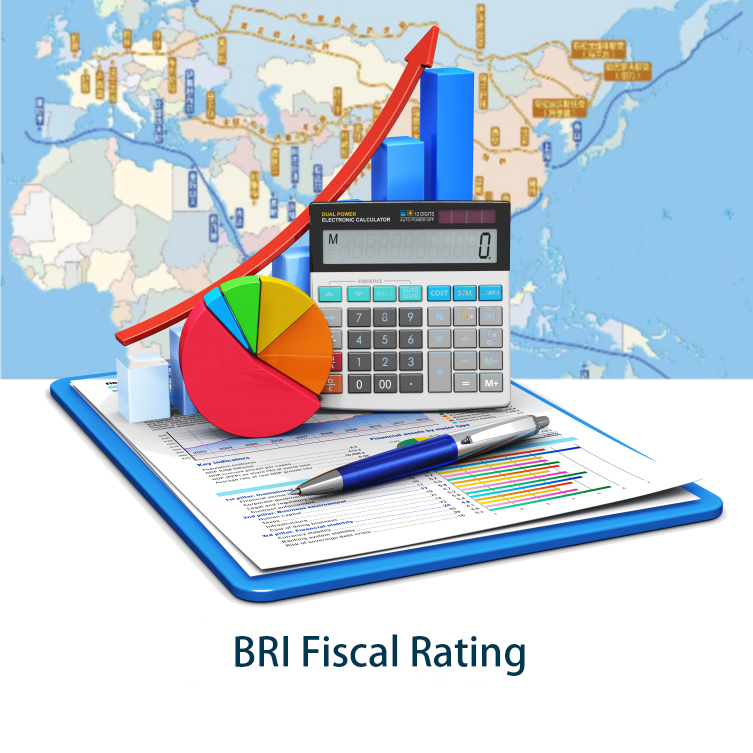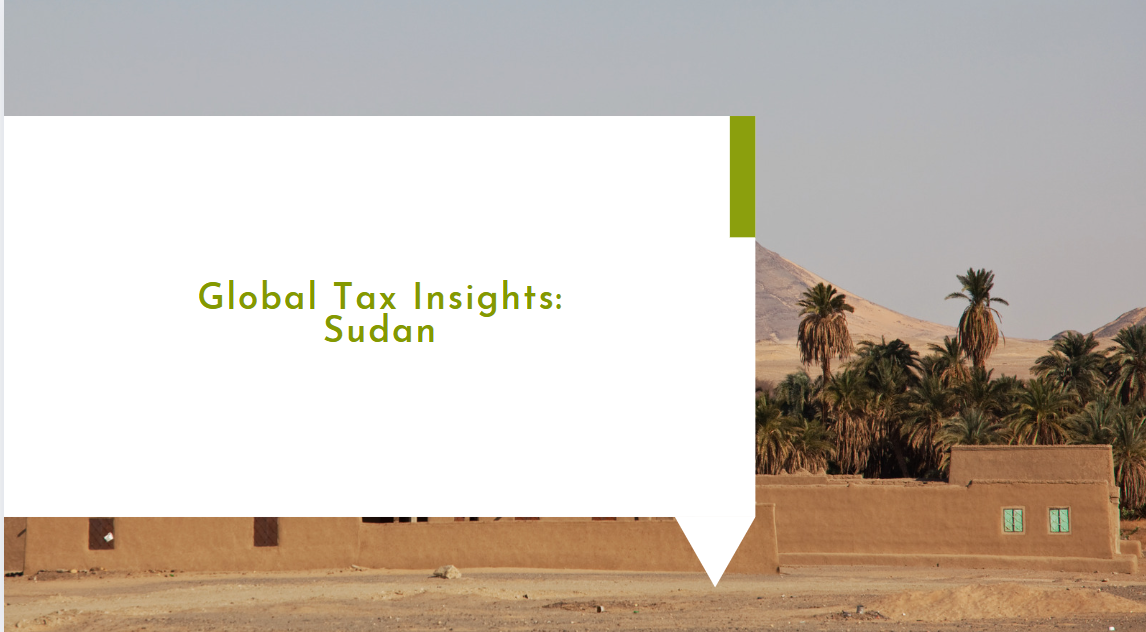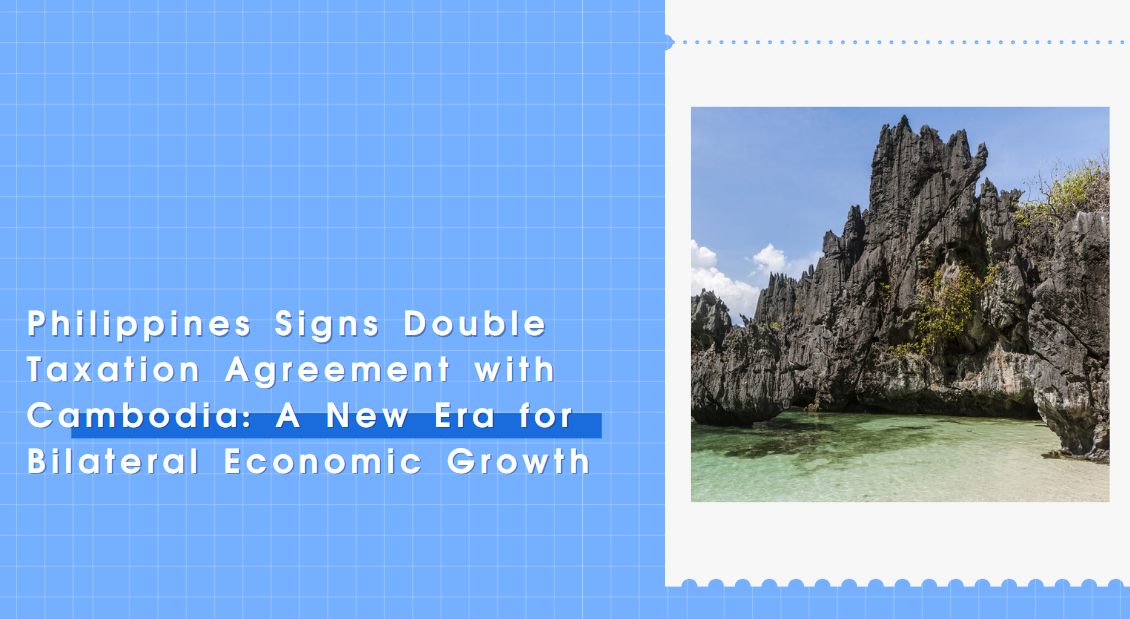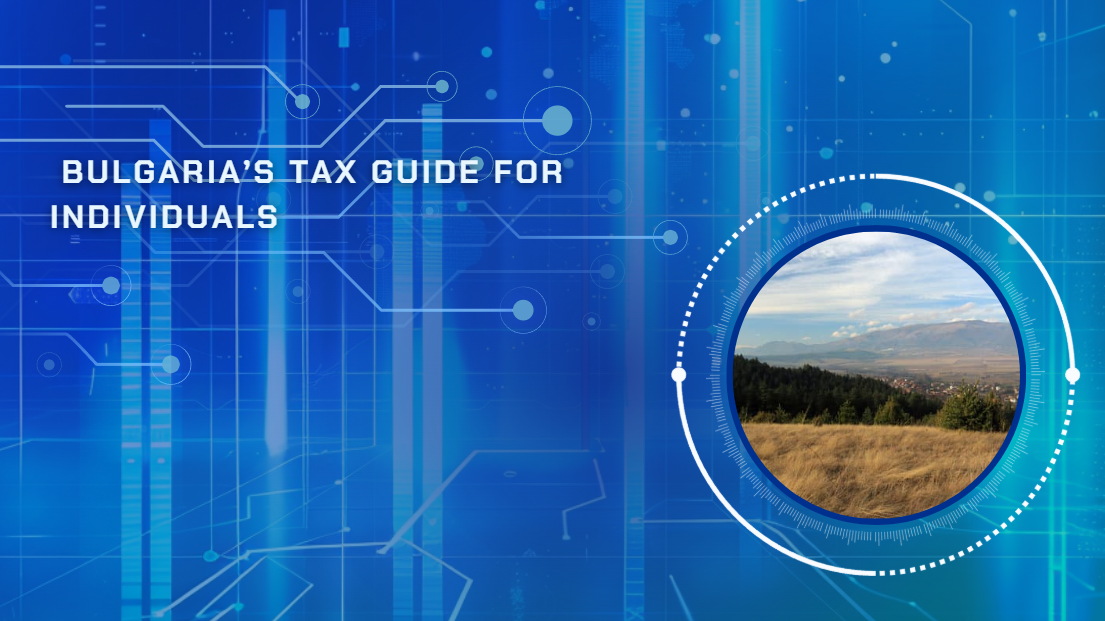Global Tax Insights: Sudan (2)
Personal Income Tax
Tax Law Elements
Content
Taxpayers, Scope of Taxation, Tax Rates, and Method of Tax Calculation
Taxpayers
Taxpayers are divided into resident taxpayers and non-resident taxpayers.
1. Resident Taxpayers: An individual is considered a resident taxpayer in Sudan if they meet any of the following criteria:
- They have physically stayed in Sudan for more than 12 months during the tax year and the two preceding tax years.
- They have physically stayed in Sudan for more than 183 days during the tax year.
- Married taxpayers are taxed separately.
- Partnerships are considered corporate income taxpayers and are taxed on their income separately. No personal income tax is levied on the income of partners from the partnership.
2. Non-Resident Taxpayers: Individuals who do not meet the criteria for resident taxpayers are considered non-resident taxpayers.
Scope of Taxation
1. Resident Taxpayers: They are taxed on their global income. Taxable income includes:
- Business Profits: Including income from professional activities. The revenue and professional income obtained from business activities by individuals follow the principles of corporate income tax.
- Employment Income:
- Wages: Taxed monthly through the Pay As You Earn (PAYE) system. Employers must deduct the tax due when paying remuneration to employees. Wages include all forms of remuneration, holiday pay, sick pay, bonuses, commissions, allowances, pensions, living allowances, travel allowances, and all allowances received by employees during their work or while providing services to their employers. However, if the tax authorities are convinced that the allowances received by employees are expenses incurred in the performance of their duties, they may be deducted from the taxable income of the employees.
- Non-Cash Benefits: The value of benefits or other allowances provided by employers to employees should also be included in the total income of the employees and taxed as follows:
- Furnished Accommodation: Increase taxable income by 35% of the basic salary.
- Furnished Accommodation with Meals: Increase taxable income by 45% of the basic salary.
- Business Car for Private Use by Employees: Exempt from personal income tax.
- Air Tickets to Outside Sudan: Taxed based on the actual amount of the ticket.
- Electricity, Water, and Telephone Bills Paid by the Employer: Increase taxable income by the actual amount of the bill.
- Medical Services, Employee Meals, and Uniforms Provided by the Employer: Not subject to personal income tax.
- Employer Pays Employee's Tax and Pays on Behalf of the Employee: Increase the taxable income of the employee by the amount of the tax. The resulting total amount is the new taxable income of the employee.
- Other Service Fees Paid by the Employer for the Employee: Increase the taxable income of the employee by the actual value of the service.
- Temporary Income: Including incentives, bonuses, allowances, and other temporary income, as well as any non-routine windfall income, is settled at a rate of 15%. The tax must be paid to the tax authorities immediately.
- Pension Income: Pension income refers to income received by individuals from government pensions, social insurance funds, or private pension plans recognized by the tax authorities. All pension income is tax-exempt. Personal contributions to pensions and social insurance are deductible. If contributions to pensions and social insurance are made to non-resident pension funds, they may be deducted only after approval by the tax authorities.
- Director's Remuneration: Treated as employment income and subject to a 15% withholding tax on the total amount.
- Investment Income:
- Dividends and Bonuses: Dividends and bonuses received by individuals from residents or non-residents are tax-exempt. Interest and royalties received by resident individuals are subject to tax as business income, and there is no withholding system for such income.
- Rental Income from Real Estate: Rental income received by resident individuals from real estate is subject to tax. Taxpayers may choose to deduct 35% of property management and maintenance costs from taxable income, or they may choose to deduct actual costs incurred, including depreciation and loan interest payments, which are determined based on accounting books signed by a certified auditor.
- Foreign Investment Income: Sudan taxes the global income of resident taxpayers. If foreign income has been taxed abroad, it may be deducted from taxable income with the approval of the Minister of Finance. Capital gains from sources outside Sudan are not taxed in Sudan.
2. Non-Resident Taxpayers: They are taxed on income sourced in Sudan. Taxable income includes:
- Employment Income: Income generated from work performed in Sudan is considered to be sourced in Sudan, even if the income is received outside Sudan, and is subject to tax in Sudan. Therefore, foreign employees working in Sudan are taxed on their total income received both within and outside Sudan. When the tax authorities are unable to determine the foreign income of foreign employees, they may assess it based on the remuneration that could be obtained by employees in similar positions. Employers of foreign employees must submit employment contracts, work permits, and residence permits to the tax authorities. When an employee leaves the country, whether temporarily or permanently, a tax clearance certificate from the tax authorities must be provided to the immigration authorities. Non-resident individuals are subject to tax on their employment income sourced in Sudan, and the tax is calculated and deducted through the Pay As You Earn (PAYE) system. The employment income of non-resident individuals is also subject to the same regulations as that of resident individuals. Pension income of non-resident individuals is not subject to tax, but director's remuneration is subject to a final withholding tax of 15%.
- Business Profits and Professional Income
- Investment Income
Tax Rates
1. Resident Taxpayers:
- Personal Income Tax Rates for Business and Professional Income:
- Annual Income (Sudanese Pounds) | Tax Rate (%)
- 0 - 3,000 | 0
- 3,001 - 6,000 | 5
- 6,001 - 10,000 | 10
- >10,000 | 15
- Personal Income Tax Rates for Rental Income:
- Annual Income (Sudanese Pounds) | Tax Rate (%)
- 0 - 3,000 | 0
- >3,000 | 10
- Personal Income Tax Rates for Employment:
- Annual Income (Sudanese Pounds) | Tax Rate (%)
- 0 - 14,400 | 0
- 14,401 - 14,520 | 5
- 14,521 - 14,760 | 10
- >14,760 | 15
2. Non-Resident Taxpayers: Withholding tax must be paid on payments made to non-resident individuals at the following rates or rates stipulated in tax treaties (arrangements):
- Employment Income, Director's Fees: Progressive tax rates, up to 15% (annual income > 14,760 Sudanese pounds)
- Business Profits: 7% (final withholding tax, withheld by the resident payer)
- Consulting Fees: 10% (final withholding tax, withheld by the resident payer)
- Dividends and Bonuses: 0
- Interest, Royalties: 15%
- Technical Fees, Real Estate Income: 10%
- Capital Gains: 2% (transfer of equity in Sudan resident companies)
Method of Tax Calculation
1. Resident Taxpayers: Tax payable = Taxable income × Applicable tax rate
- Taxable income = Total income - Exempt income - Pre-tax deductions - Exempt deductions - Loss carryforwards
- Exempt Incomeincludes:
- Pensions paid to members of municipal services or disciplinary departments;
- Payments and transfers to envoys, diplomats, and employees of international organizations;
- Interest on bank deposits, savings accounts, and postal savings funds;
- Personal income of employees aged 50 or over working in the government or private sector, up to the maximum salary under the government's salary plan, excluding remuneration of members of government or state-owned enterprise boards.
- Pre-tax Deductions:
- Sole proprietorship income: A statutory deduction of 3,000 Sudanese pounds is available to all resident and non-resident individuals to offset income from sole proprietorships, as well as rental and professional income.
- Pension contributions to nationally recognized pension funds, pensions, or retirement plans;
- Social insurance contributions to the National Social Insurance Fund;
- Zakat paid by employees to the Sudan Zakat Corporation;
- Living allowances for employment income, up to 7,495 Sudanese pounds per year;
- Transportation allowances, up to 120 Sudanese pounds per month.
- Property rental income deductions





















































First, please LoginComment After ~